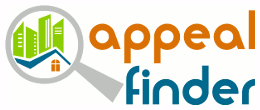‘Decision hygiene’ tips from Nobel prize winner Daniel Kahneman
‘Decision-making hygiene’ is an intriguing new concept. What does it mean for planners? I’ve boiled it down to 10 tips to help fine-tune your planning skills.
Nobel prize winning psychologist Daniel Kahneman articulates the underlying, sometimes hidden, problems in his book ‘Noise: A Flaw in Human Judgement’. Everybody oscillates to a greater or lesser degree either side of the perfect decision, like a loose guitar string vibrating off-pitch, leading to variability in their decision-making.
Decisions inadvertently causing an injustice
Did you know High Court judges give harsher sentences just before lunch, when they are hungry? In another study, fingerprint experts examining whether fingerprints are a match were shown to make different decisions when presented with the same case some months later. Likewise, in the planning world, none of us would be surprised if more planning applications are refused on bad weather days compared to sunny days.
So if you take pride in your fairness, objectivity and consistency in decision-making, how do you banish this natural human tendency for variable judgements?
Improving your decision-making
A perfect decision-making process is like singing a clear, consistent note, like an opera singer. Unfortunately even expert singers wobble, mostly getting the pitch right but sometimes singing flat or sharp. Some singers are worse than others but the good news from Kahneman’s book is the ‘noise’ can be improved.
Kahneman’s phrase “decision-hygiene” uses the analogy of routine hand-washing in the NHS. Like washing hands, it has to be a regular, embedded practice because you just don’t know which days it will save you from inadvertently harming your patient – sorry, planning applicant.
You may be surprised to realise you may already have some ‘decision-hygiene’ in place. For example, if you routinely don’t make decisions on a Monday morning or a Friday afternoon (or whenever it is you feel below par or distracted). Many development control officers deliberately don’t consider a planning application until after the consultation period has ended, although it is a moot point whether this is more due to workload than a genuine desire to avoid pre-judging the application before receiving consultees’ feedback. Using the NHS analogy, you probably give your hands a quick wash but should definitely be more thorough.
So what does careful “decision-hygiene” look like? I’ve adapted Kahneman’s checklist with planning in mind:
1. Have you inadvertently substituted the right question for an easier question? For example, substituting the more challenging, “does this meet Local Plan policies?” for the easier, “Do I like this scheme?”
2. Have you neglected an important factor or given weight to an irrelevant one? For example, “Highways haven’t responded yet on the bad access, but there’s been few comments from anyone else, so it’ll probably be ok.”
3. Have you included an ‘outside’ view? For example, “Beyond these 4 walls, will my decision still sound sensible, or am I applying the team’s ‘group-think’ or my own biases?”
4. Did you make sub-conscious pre-judgements? For example, I don’t like the developer and therefore it’s a bad scheme.
5. Did you fully consider the alternatives? For example, asking yourself, “Is it better if I….?”
6. Did you suppress uncomfortable data or opinions? For example, “I don’t agree with Dave, his input isn’t worth paying attention to.”
7. Did you exaggerate the relevance of an issue because it’s recent, or dramatic, or personal? For example, “The last case hung on design issues, so it’ll be the most important issue in this case too.”
8. How do you pay attention to the quality of information, giving more weight to facts than to anecdotal evidence or opinion?
9. How do you distinguish between what is certain and what is uncertain? For example, “The wall will be precisely 10 metres high, and I’m about 60% certain about its impact on the streetscene.”
10. How variable is your risk appetite? For example, “I normally do it this way, but I nearly crashed the car on the way in, so I’ve decided to be more cautious….”
The key to improving decision-making
Kahneman boils his advice down to this: “Eliciting and aggregating judgements that are both independent and diverse will often by the easiest, cheapest and most broadly applicable decision hygiene strategy.”
In other words, the top tip from Kahneman’s book, “Noise, a Flaw in Human Judgement” is to seek others’ opinions. Many perspectives add up to better decisions. So go on, ask a friend or colleague for their opinion over your next cup of coffee. Or if they’re busy, take 5 minutes to skim-read a recent planning appeal on a similar case to widen your perspective. Like an opera singer, take 5 minutes every so often to get your decision-making back in tune.
You'll find appeals easily on our Home page.

